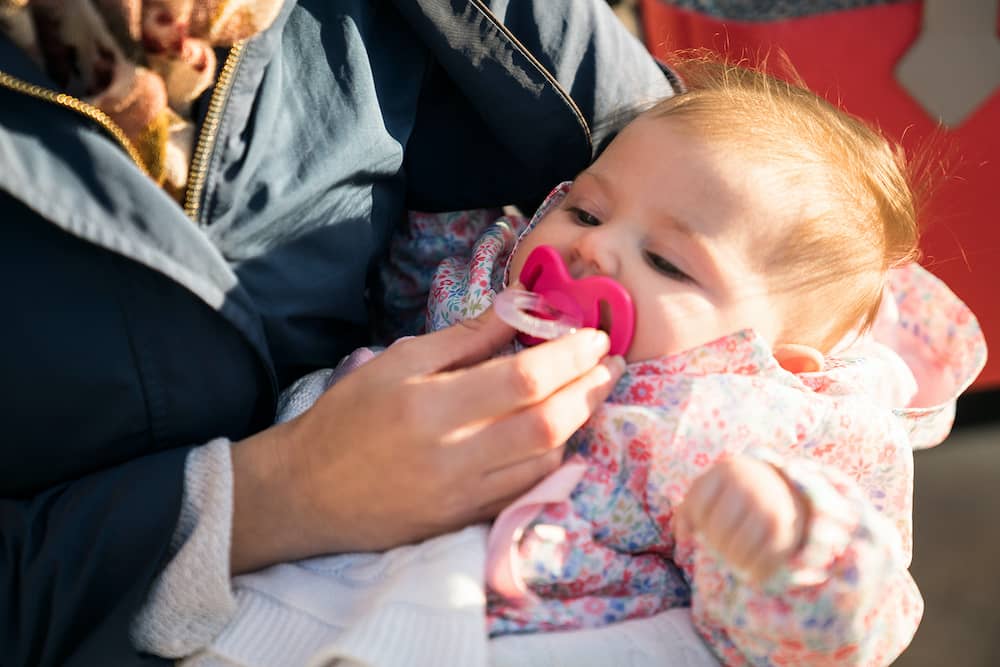Oral hygiene of the newborn from birth to the first tooth

When we talk about the care and hygiene of the newborn , we always and mainly think of the bath, the care of his delicate skin and his first hair, of the parts of the body such as the ears and the nose that must always be kept free and clean, the nails that must always be shortened and filed to prevent the baby from scratching his face or eyes.
As far as the oral cavity is concerned, it is mistakenly thought that there is no need to take great care, especially when the child is very small, the teeth have not yet erupted and perhaps he is exclusively breastfed.
What we may not know is that instead , from birth it is necessary to take very good care of the hygiene of the newborn's mouth to avoid various problems with the oral cavity that could arise during its growth.
In this article we will provide you with a series of practical tips for the oral hygiene of the newborn from birth to the first tooth. Let's get started now!
Caries in the newborn: a risk to be avoided
First of all, let's start by dispelling a false myth: the one related to the fact that the appearance of caries on milk teeth has no consequences on permanent teeth.
Caries is one of the silent infectious diseases with a high transmissibility rate from adults to children during the first 2 years of life and is very risky because it is able to create, in a short period of time, many problems that can affect the healthy development of the oral cavity. This is even if the milk teeth are affected!
For example, the conception that milk teeth or deciduous teeth, being destined to fall out, do not require care or treatment from the dentist is absolutely unfounded; unfortunately, a decayed tooth is instead the signal that in the mouth there is a situation of imbalance of the normal bacterial flora that favors the formation of caries.
Scientific studies confirm that unfortunately 3 out of 4 children suffer from caries of milk teeth which, if not treated, represents the risk of developing the carious disease even on permanent teeth, the definitive ones of adult life. If left untreated, caries causes pain, negatively affects children in eating, speaking, development and growth and let's not forget that losing a baby tooth early due to caries can often also mean a reduction in space for permanent teeth and promote impaired growth of the jaw bones and incorrect development of the dental arches.
In short, it is better to avoid the risk! It is therefore important to take great care of milk teeth from the first days because they will accompany our child's life for a rather long period of time considering his first 6 years of life.
How to avoid the risk of caries in the newborn
Avoiding the risk of tooth decay is only possible through prevention that we can put into practice with good oral hygiene every day. It is very important to start as soon as possible in order to avoid that ecosystem favorable to the deposit of plaque and the accumulation of those harmful bacteria responsible for one of the oral infectious diseases, unfortunately still among the most widespread in children from the first years of life, so much so that we often speak of "early caries" in these cases.
Cleaning your baby's mouth and gums must therefore become a routine after each meal and even if it seems apparently complicated you will see that after the first few days it will be a simple gesture for both you and your baby who will get used to the sensation.
If you are breastfeeding him, it is important to know that it is essential to wash his gums after each feed even if the first teeth have not yet erupted and are only covered with mucous tissue.
In fact, mother's milk contains among its nutritious principles also the natural sugars essential for the growth and development of the child, and it is important to remove the residues of milk from the gums because through the microorganisms present in the mouth it is possible the formation of the bacterial load more commonly called "plaque" which is responsible for many diseases of the oral cavity, including caries.
Even if you are breastfeeding with liquid or powdered formula , commonly called artificial milk, you run the same risks if constant oral hygiene rules are not introduced after each meal, including those at night.
What to do for proper oral hygiene of the newborn
While waiting for your baby's first milk teeth to appear, you can do a lot to ensure the best oral health starting from birth and greatly lower the risk of cavities.
Below we will provide you with a series of practical tips to put into practice immediately!
How to avoid the transmission of caries
Prevention starts with the mother. Follow the advice on good practices to be implemented already during pregnancy and continue to take care of your mouth and oral hygiene to avoid transmitting cariogenic bacteria to your baby through your saliva.
How to clean your baby's mouth
How is oral hygiene performed in newborns? Taking care of the oral hygiene of newborns from the first days of life up to 3-4 months is very simple: to clean their mouth after each breastfeed or use of the bottle, just wrap around the index finger a sterile gauze that can be used dry or moist with mineral water. Of course, hands must be washed thoroughly before proceeding!
Light and rotary movements are then carried out on the gums with delicacy. In this way, all the small fissures that create the milk teeth arriving on each gum will also be cleaned of milk deposits.
What to do when the first teeth appear
When the eruption of the first teeth begins to cause some discomfort to the inflamed gums, a gum cleaner massage will be useful which, in addition to giving relief, thanks to its particular 3D silicone surface, will help keep the mouth cleaner.
Starting from 3 months of life of the baby you can start using a special electric toothbrush for babies which will allow you to clean 5 times more effectively than a manual toothbrush.
Which pacifier to choose and how to use it
While waiting for your baby's first milk teeth to appear and for the correct development of the oral cable in infants up to 6 months, it's important to also pay attention to choosing the type of pacifier and using it correctly . So choose an anatomical silicone pacifier, recommended by experts given its shape which seems to adapt better to the baby's palate and given the material, non-toxic, hypoallergenic and able to not deform even after numerous sterilisations.
Also, try to use the pacifier correctly : limit its use only to particular moments such as to calm crying or accompany falling asleep and never dip the pacifier with sugar or honey.
And last but not least... keep following us to stay informed about oral hygiene and the prevention of the main risks associated with teeth and gums!





